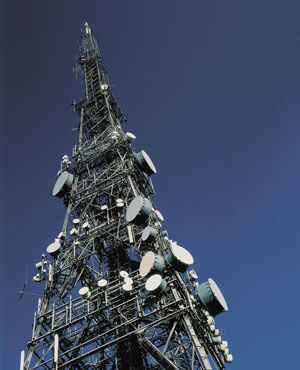 IBC 2009 – Amsterdam. Further HD services could launch in the UK if Ofcom gives permission for the new terrestrial HD multiplex to run at 40 Mbps.
IBC 2009 – Amsterdam. Further HD services could launch in the UK if Ofcom gives permission for the new terrestrial HD multiplex to run at 40 Mbps.
“If we get 40 Mbps it would really help us to launch more services, but we’ve really got to achieve the 98.5% universal coverage to match analogue,” Graham Plumb, BBC Head of Distribution Technology, told delegates at IBC 2009. Plumb said there was currently enough capacity to run four to five HD services at 8 Mbps per service. “That doesn’t mean Freeview will be restricted to four to five services for all time, some of the digital dividend is going to mobile, but there still might be capacity for new services.”
The regulator is due to make its decision known in the next few weeks, taking into account the seven transmission modes that have been run since January on the BBC/Arqiva pilot from Crystal Palace. While the public service channels are likely to remain in MPEG-2/DVB-T for some time to come, commercial broadcasters would have greater licence to switch to MPEG-4/DVB-T2, opening up further capacity.
Currently three HD services are expected to launch in the North West from Winter Hill on December 1; BBC HD, ITV HD and Channel 4 HD/S4C HD. Five is due to launch during 2010.
London, Glasgow, Newcastle, Birmingham and Leeds/Bradford will run separate HD services prior to analogue switch-off, linked by satellite. The first additional HD service from Crystal Palace is expected to launch in December.
Tony Mattera, network design director, Arqiva, explained that 33 main stations and 500 relays would, already installed with DVB-T, would have to be reconfigured with DVB-T2.